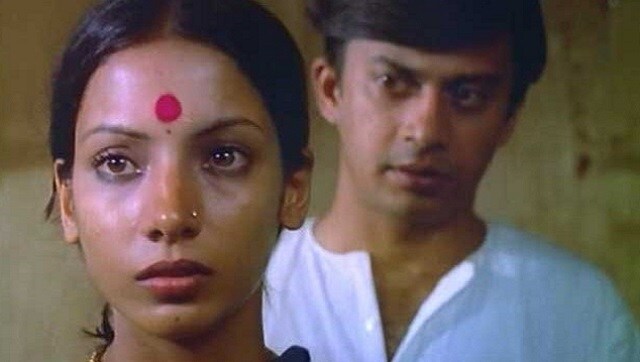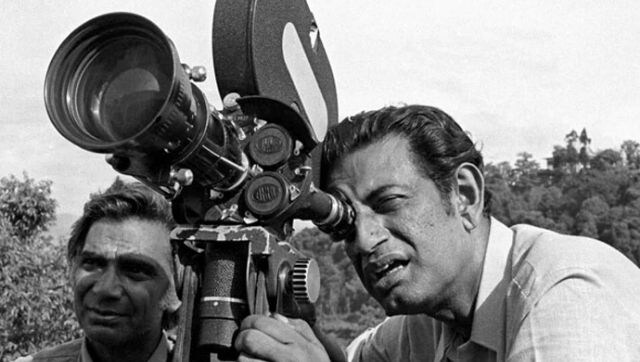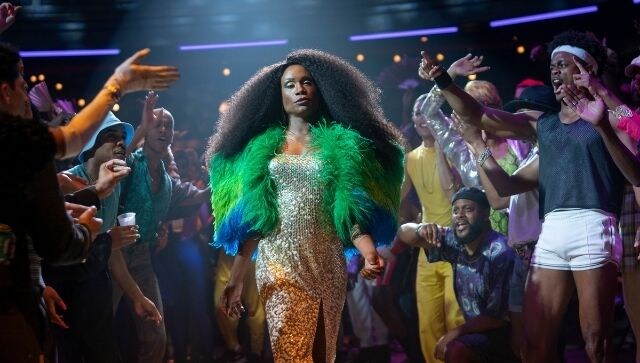Vanraj Bhatia, sound of India's parallel cinema, leaves behind music that's as catchy as chaotic and contemplative
Irony lies in the fact how someone who is renowned for being a Western Classical music composer has gone on to compose and score for decidedly rustic Indian movies.

Vanraj Bhatia's Hindi cinema debut was Ankur (1974), Shyam Benegal's directorial debut
In 2017, when National Centre for the Performing Arts Chairman Khushroo Suntook introduced Vanraj Bhatia as the greatest composer of the 20th century, it was by no means an exaggeration. The NCPA was then hosting a musical soiree to pay tribute to Bhatia’s staggering body of work, one which saw many luminaries from the Indian film and classical music industries making an appearance.
Ailing and on the verge of penury, the 93-year-old Bhatia breathed his last today. His friends and well-wishers in the industry have been rallying to raise funds for his medical insurance and other expenses the past many months even as he was selling off expensive English crockery and artefacts from his Napeansea Road home. The Indian Performing Rights Society (IPRS) too came to his rescue as funds were released to Bhatia to help him make ends meet.
His demise marks the end of a very niche club of Indian composers whose range and command over musical style spans musical cultures and disciplines. You may not have an instant recall with his music if you have survived the 80s and 90s without being affected by arthouse cinema in India. But you will most certainly be able to hum the iconic jingle of a brand if you see a mere mention of it. Take, for instance, Liril. You immediately thought “La la la la la…lalalalala, la la”, didn’t you?
That, dear friend, is a fraction of the genius that Bhatia was. He was the first composer to score music for a commercial in India (Shakti Silk Sarees), and subsequently composed over 7,000 jingles over time, including for popular brands Garden Vareli and Dulux.
His music was as catchy as it was chaotic and contemplative.
Spanning Tchaikovsky to Rig Veda hymns, his was a sound that defined the New Wave Cinema movement in India. He did not subscribe to formulaic music compositions or harmonium-led compositions as was present in the Mumbai-housed Hindi cinema (later cringingly called Bollywood) of the time. He did not subscribe to the unsaid monopoly of playback singers, and often got non-mainstream voices to give expression to his work. And he took immense pride in having arranged his own music, thus having a visceral understanding of the sound of his works.
Bhatia’s foray into cinematic music was through Shyam Benegal’s directorial debut Ankur in 1974. He went on to score music for most of Benegal’s other films, including Manthan, Mandi, Nishant, Bhumika, and Sardari Begum. He has also scored for pathbreaking movies like 36 Chowringhee Lane (directed by Aparna Sen), Jaane Bhi Do Yaaron (Kundan Shah), Mohan Joshi Haazir Ho (Saeed Mirza), Pestonjee (Vijaya Mehta), and Khamosh (Vidhu Vinod Chopra).
A student of Hindustani classical music, Bhatia’s chance encounter with Johann Strauss’ 'Blue Danube' and then Tchaikovsky’s 'Piano Concerto No. 1' made him a lifelong fan of Western Classical Music. The New Era School (Girgaum, Mumbai) graduate also learnt to play the piano from a pediatrician before moving to London in order to study at the Royal Academy of Music. Armed with two scholarships, Bhatia moved to train at the Paris Conservatoire under the aegis of the great French composer Nadia Boulanger.
When he returned to India, he started work on commercials until his big break with Benegal’s Ankur. The rest of his career reflects his impeccable taste both in life and in his music. A man of very discerning sonic palates, Bhatia’s compositions and his movie choices were testimony to his unwavering commitment to creative quality. If jingles were meant to be massy, his film choices were mostly classy, with gentle derision for popular cinema. He often worked only with those that met his very high standards of creativity.
Among the greatest ironies is how someone who is renowned for being a Western Classical music composer has gone on to compose and score for decidedly rustic Indian movies.
Harnessing his strong command over Western instruments and instrumentations, Bhatia’s brilliance lay in creating Indian soundscapes for the movies that he worked on.
Yet he pushed himself to work on mainstream films too with Ajooba, Damini, Beta, and Chamatkar being the standout works. If Bollywood typecast him as the “Western” one, Bhatia himself had no intention whatsoever to seek approval from them. In fact, he wore that badge with pride, and quietly shut them up with films like Sardari Begum that put the sarangi at the heart of the orchestration. Arati Ankalikar’s 'Chali Pee ke Nagar' from the same film is a delightful number that resonates with you as the days pass, growing slowly and surely in your mind.
As a composer for television shows, his career followed a similar trajectory of substance over TRPs. He created the superlative opening theme for Doordarshan’s first soap Khandaan, and went on to be the man behind the sound for Wagle ki Duniya, Banegi Apni Baat, and even Bharat - Ek Khoj (based on Pandit Jawaharlal Nehru’s Discovery of India). His Tamas theme, that started with a shrill scream, continues to haunt us even today when we think about it, as we realise just how much of his work has instant recall value with the audiences.
Bhatia composed music and lived life on his own terms. He leaves us with a stunning legacy of musical brilliance — not just in terms of volume, but by teaching us to widen our ear for sounds.
also read

Satyajit Ray's birth centenary celebrations stalled due to second wave of COVID-19
Satyajit Ray's son Sandip, along with other family members had planned year-long celebrations which have now been postponed.

Disney+ Hotstar unveils lineup of short-form titles; Shreyas Talpade, Mandira Bedi, Vidya Malvade part of cast
The shows will begin streaming from 7 May, and episodes will be debuted every day.

'Proud of Pose's legacy, it's more important than the show itself': Ryan Murphy hails series' biggest LGBTQ+ cast ever
Calling Pose 'a personal show' to him, Ryan Murphy, who has co-created the show debuting its third and final season, recounts how networks wouldn't allow him to have a single gay character on his shows when he started out.